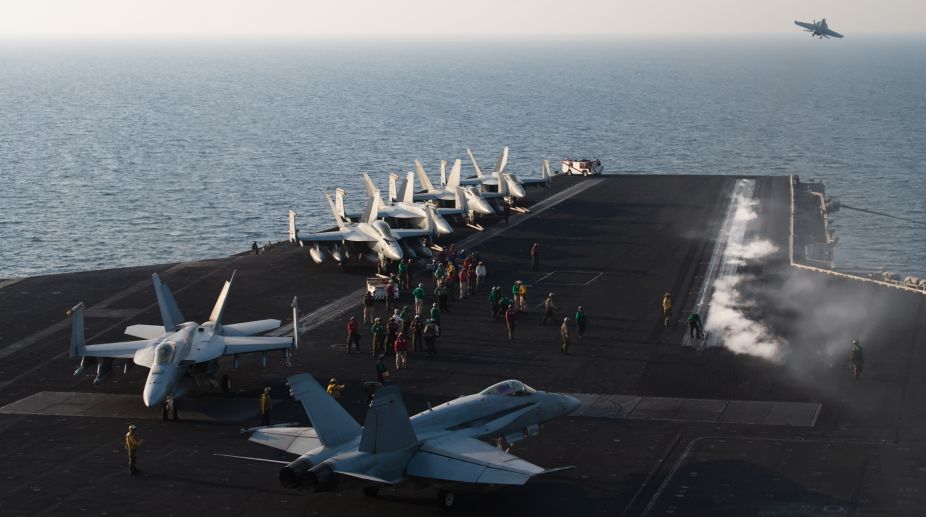For the first time since the end of the Vietnam War, a US aircraft carrier made a port call in Vietnam on Monday, signalling how Chinas rise is bringing together former foes in a significant shift in the regions geopolitical landscape, the media reported.
The USS Carl Vinson, anchored off Danang, the port city that served as a major staging post for the American war effort in the country, reports The New York Times.
Advertisement
“It’s a pretty big and historic step since a carrier has not been here for 40 years,” said Rear Adm. John V. Fuller, the commander of the Carl Vinson strike group, whose father served in Vietnam.
“We hope to continue the same issue that we’ve always had… And that’s to promote security, stability and prosperity in the region.”
The arrival of the Carl Vinson strike group’s 5,500 sailors marks the first time such a large contingent of American military personnel has landed on Vietnamese soil since the last of the US troops withdrew in 1975.
During the four-day port call, the aircraft carrier’s personnel will visit an orphanage and a centre for victims of Agent Orange, the defoliant used by the United States military that is blamed, through a toxic contaminant, for poisoning generations of Vietnamese.
Carrier sailors will also play basketball and soccer with Vietnamese counterparts.
For the last month, the Carl Vinson has been deployed in the South China Sea, one of the world’s busiest shipping lanes. The New York imes reported.
Six governments have competing claims over various features in the South China Sea. In recent years, Vietnam, in particular, has watched warily as China, through extensive reclamation, has transformed bits of rock and reef it controls into sprawling artificial islands that now double as military bases.
In 2017 alone, China built permanent facilities on reclaimed land that “account for about 72 acres, or 290,000 square metres, of new real estate”, according to the Asia Maritime Transparency Initiative run by the Centre for Strategic and International Studies in Washington.
The admiral declined to comment, however, on how China’s island-building is changing regional dynamics.











